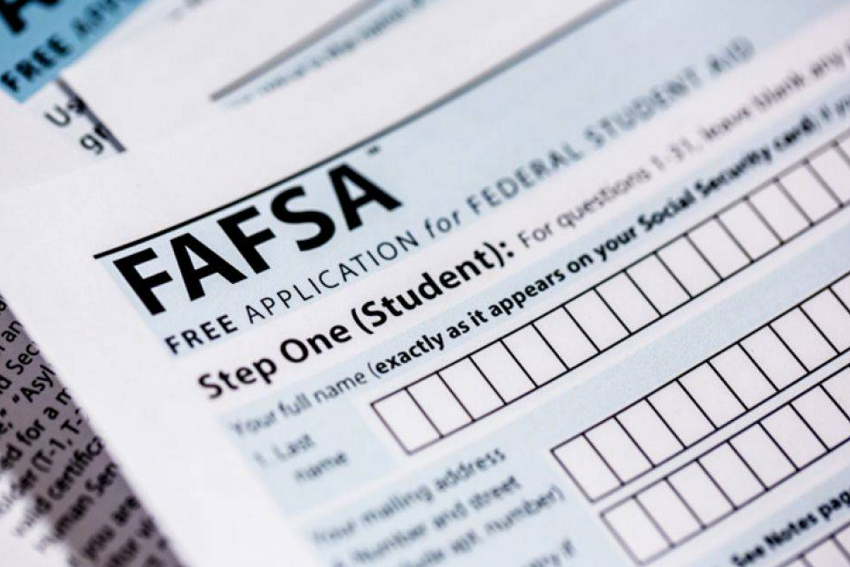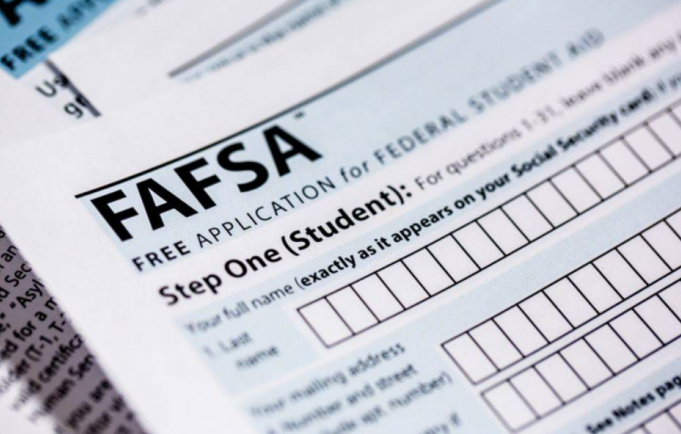The Free Application for Federal Student Aid (FAFSA) is a crucial step in the college application process for students seeking financial assistance. As we embark on the year 2024, it’s essential to understand the intricacies of FAFSA to make informed decisions about financing higher education.
This article aims to provide a comprehensive guide to FAFSA 2024, covering key aspects, updates & Changes in FAFSA Form, Key Deadlines and Tips for a Seamless Application and tips for a successful application in FAFSA deadline 2024.
What is FAFSA?
FAFSA is a form that students in the United States fill out to determine their eligibility for federal student financial aid, including grants, work-study, and loans.
It is also used by many states and colleges to assess eligibility for their financial aid programs.
Key Components of FAFSA
- Personal Information: This includes details about the student’s and their parents’ demographics and financial information.
- Financial Information: FAFSA collects income and asset information to assess the family’s financial need.
- School Selection: Students must list the schools they are applying to or attending to receive financial aid offers.
Updates for FAFSA 2024
- Prior-Prior Year (PPY): FAFSA relies on tax information from the prior-prior year, allowing families to use already filed tax returns. For the 2024-2025 academic year, this would involve tax information from 2022. This change streamlines the application process and provides more accurate financial information.
- Changes in Family Contribution Calculation: Adjustments to the Expected Family Contribution (EFC) calculation may affect aid eligibility. It’s crucial for families to understand how their financial situation influences this calculation.
- Expanded Eligibility for Pell Grants: FAFSA 2024 may bring about changes in the criteria for Pell Grants, potentially expanding eligibility for this need-based federal grant program.
5 Key Changes Coming to the 2024–25 FAFSA

There are six key changes coming to the FAFSA form and experience for 2024–25.
- A spouse or stepparent may need to participate in your FAFSA form as a contributor. Contributor is a new term being introduced for the 2024–25 FAFSA form. we’ll go into more detail on what that means in our “Who is a Contributor on the 2024–25 FAFSA Form” Article.
- Your federal tax information will now be transferred directly from the IRS into the form. This information will be used to determine your eligibility for federal student aid and shared with schools and state higher education agencies to prepare financial aid offers.
- For this transfer to happen, you and your contributors must provide consent and approval on the FAFSA form. This is a new requirement, and if consent and approval aren’t provided, you will not be eligible for federal student aid. Even if one of your contributors doesn’t have a Social Security number, didn’t file taxes, or filed taxes outside of the U.S., consent and approval are still required.
- You and your contributors will each need to have your own StudentAid.gov account username and password to access and complete the online FAFSA form.
- Contributors who don’t have a Social Security number can still create a StudentAid.gov account to fill out their sections on the FAFSA form. But remember, you must be a U.S. citizen or eligible noncitizen to be eligible for federal student aid.
Once your FAFSA form has been started, you will now be able to view the status, including contributor progress in your StudentAid.gov account.
When you complete the online FAFSA form, your information can now be sent to more schools, with the option to select up to 20 colleges, career schools, or trade schools.
Who is a Contributor on the 2024–25 FAFSA Form?
Contributor is a new term on the FAFSA Form. A contributor Is anyone required to provide consent and approval to have their federal tax information transferred directly from the IRS into the FAFSA form, as well as a signature on the form.
This may include you, the student, your spouse, a biological or adoptive parent, or a stepparent.
The contributors on your FAFSA form are determined by your dependency status, your tax filing status, and your marital status.
The information provided by contributors will be used to determine your eligibility for federal student aid. But contributors don’t need to worry that they’ll be expected to contribute to your school costs. Being identified as a contributor doesn’t mean they’ll be financially responsible.
Even if your or your parent’s spouse isn’t identified as a contributor, their information, including personal and financial details, will still be required on the FAFSA form if they are currently married and not separated or divorced.
Read More: 5 Tips for Managing Your Student Loans Like a Pro
Understanding FAFSA Deadlines
- Federal Deadline: The federal deadline for FAFSA submission for the 2024-2025 academic year is June 30, 2025. This date is applicable for all states and institutions participating in federal student aid programs. It’s important to note that some states and colleges may have their own deadlines, which can differ from the federal deadline.
- State and College Deadlines: States and colleges often have specific deadlines for financial aid consideration. These deadlines may be considerably earlier than the federal deadline. It is crucial for applicants to check the FAFSA deadlines for each school and state to which they are applying. Missing these deadlines could result in the loss of certain types of aid, including state grants and institutional scholarships.
- Priority Deadlines: Many colleges and universities set priority deadlines for FAFSA submission. Meeting these deadlines increases the likelihood of receiving the maximum amount of financial aid possible. Students are encouraged to identify and adhere to the priority deadlines of the schools they are interested in attending.
Tips for Meeting FAFSA Deadlines
- Early Planning: Begin the FAFSA application process well in advance of the deadlines. This allows ample time to gather necessary documents and address any unexpected issues that may arise.
- Set Reminders: Establish a system of reminders for key deadlines, including federal, state, and institutional dates. Missing a deadline can have significant implications for financial aid eligibility.
- Check Individual Requirements: Each college may have specific requirements or additional forms beyond the FAFSA. Be sure to review the financial aid information provided by each institution to ensure all necessary steps are taken.
- Submit Accurate Information: Accuracy is paramount in the FAFSA process. Double-check all information provided to avoid delays in processing or potential errors in financial aid awards.
More: What are the 401(K) Contribution Limits for 2024 in the USA?
Tips for a Successful FAFSA Application

- File Early: FAFSA applications open on October 1st for the following academic year. Early submission increases the chances of securing aid as some programs have limited funding.
- Gather Necessary Documents: Have all required documents, including tax returns and W-2 forms, ready before starting the application to streamline the process.
- Understand Dependency Status: Determine whether you are a dependent or independent student, as this impacts the information needed for the application.
- List All Schools: Even if you haven’t finalized your college choices, list potential schools on the FAFSA to ensure they receive your financial information.
- Stay Informed: Regularly check for updates or changes to FAFSA policies. Understanding the latest developments ensures you’re well-prepared for the application process.
Also Check: What Are The Main Types Of Taxes In USA?
Navigating the FAFSA process in 2024 requires not only understanding the application itself but also being acutely aware of associated deadlines.
By familiarizing themselves with federal, state, and institutional timelines and following best practices, students can embark on their higher education journey with confidence, knowing that they have taken the necessary steps to secure essential financial aid.
The journey towards a college education is a significant investment, and meeting FAFSA deadlines is a pivotal part of ensuring that this investment pays off.
Get the Latest Information on Business, Finance, Investment, Brand Building, Lifestyle, Entertainment, and Billionaire Quotes On Edueasify.









